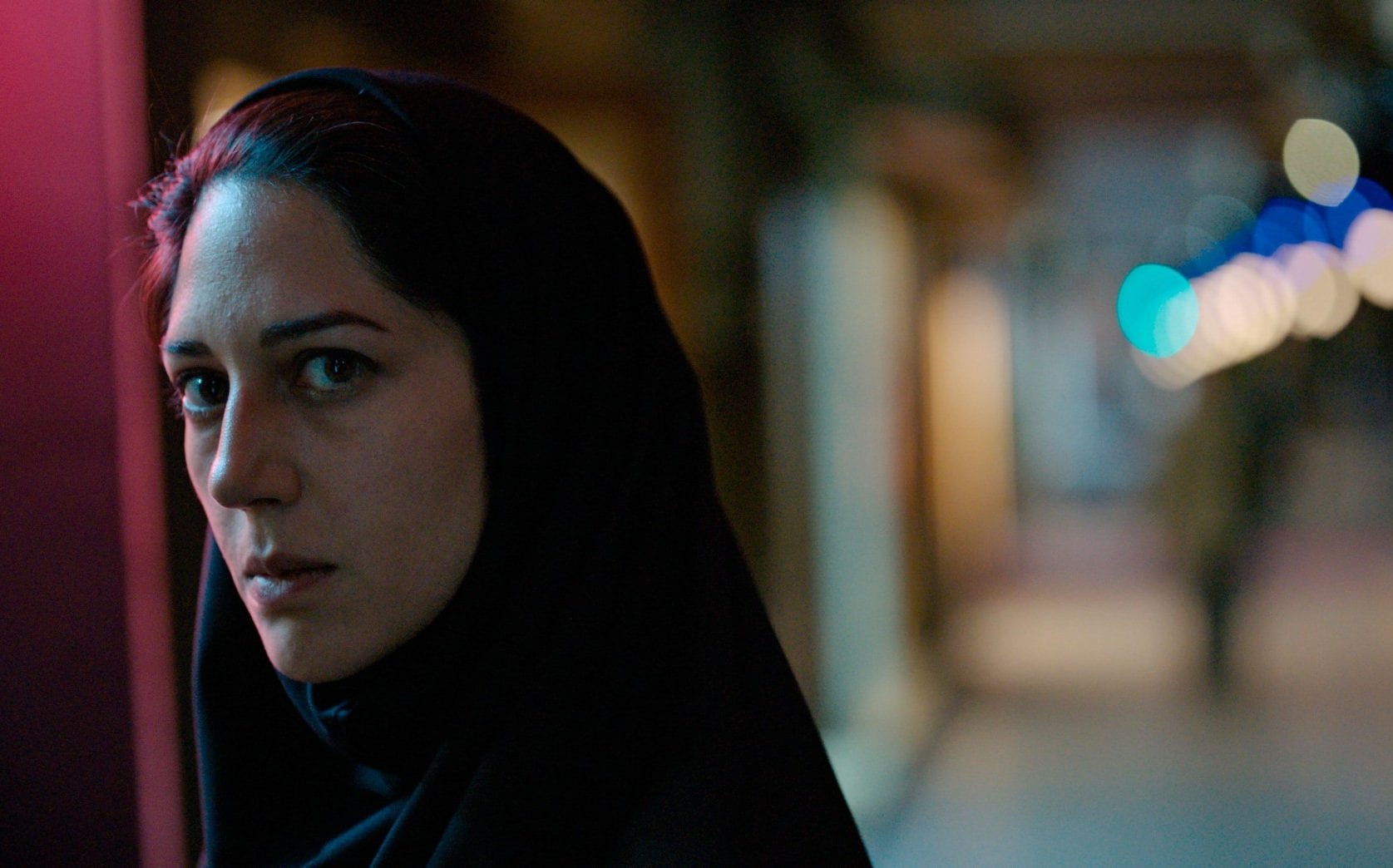 There’s something about those five little words, based on a true story, that really draws viewers in. Especially when we feel like we are being given access to a different side of the story. Ali Abbasi’s Holy Spider uses the murderous spree of the “Spider Killer” back in Tehran in the early 2000s as the basis for its narrative. In real life, the killer took the lives of sixteen sex workers. We meet our killer when he has just managed to dispose of victim number nine.
There’s something about those five little words, based on a true story, that really draws viewers in. Especially when we feel like we are being given access to a different side of the story. Ali Abbasi’s Holy Spider uses the murderous spree of the “Spider Killer” back in Tehran in the early 2000s as the basis for its narrative. In real life, the killer took the lives of sixteen sex workers. We meet our killer when he has just managed to dispose of victim number nine.
In the holy city of Mashhad, Saeed (Mehdi Bajestani) appears to be a hard-working family man, with a young wife and three children at home. A veteran of the Iran-Iraq war, he mourns the fact that he was not chosen to be a martyr. Instead, he comes home every night to see sex workers looking for clients in front of a religious shrine. The anger that pulses through him is worryingly evident. Meanwhile, intrepid reporter Rahimi (Zar Amir-Ebrahimi) faces a myriad of roadblocks – be they sexism, corruption, religious “norms” or social expectations – as she attempts to investigate a series of murders that have recently taken place in Mashhad.
Like an episode of Columbo, we know from the offset that Saeed is our killer. We are plunged into his depraved logic by way of an extremely graphic death. The camera lingers on a rosy-lipped sex worker who has her headscarf – a symbol of religious conformity, if not obedience – used against her as a weapon. We get intense close-ups of her eyes, mouth, hands, as she struggles to take her last breaths. It feels dirty, intrusive, and it leaves in no doubt as to what type of man Saeed is and, potentially, how uncomfortable Holy Spider is going to make us feel.
And Abbasi, from those opening few scenes, never allows us to rest. He takes the usual “serial killer thriller” tropes and uses them for maximum impact. We get more than a nod to Alfred Hitchcock’s Frenzy with the actual method of murder and with the utterly grotesque close-ups. We get hints of Se7en, Silence of the Lambs and perhaps even I Saw The Devil as the police, journalists and we, as viewers, struggle to keep up with Saeed’s blood lust. There’s a scene wherein a very elderly sex worker struggles to lift herself onto the back of his bike which will leave you appalled and heartbroken at his lack of mercy.
Both Mehdi Bajestani and Zar Amir-Ebrahimi are phenomenal in their roles. Whilst, at times, it does feel like we spend more time with Saeed than we should, Amir-Ebrahimi’s Rahimi is the feminist hero this film – and these poor victims – so desperately need. There’s a steeliness to her gaze; a determination in her gait. Bajestani offers us insight into the mind of a killer. We see his body language alter rapidly on his way to select his next victim; his haughtiness over his “religious crusade”. Their performances are well-matched in terms of impact and power.
 The cinematography is also excellent. Rather than being a holy city, Mashhad is made to feel seedy and sticky, with fluorescent street lamps identifying both hunter and prey. The sex workers are all given inglorious close-ups of their flaking lips, their smudged eye liner and their dirt-streaked nails. There’s lots of handheld, shaky camera work as Rahimi makes her way down narrow streets at night time, the roar of motorbikes in short, sharp bursts.
The cinematography is also excellent. Rather than being a holy city, Mashhad is made to feel seedy and sticky, with fluorescent street lamps identifying both hunter and prey. The sex workers are all given inglorious close-ups of their flaking lips, their smudged eye liner and their dirt-streaked nails. There’s lots of handheld, shaky camera work as Rahimi makes her way down narrow streets at night time, the roar of motorbikes in short, sharp bursts.
There’s also a huge swathe of misogyny, social expectations and religious zeal that are inescapable in a film like this. Rahimi, as a single woman, can’t even check into a hotel by herself. She isn’t taken seriously as a journalist, with lewd comments made about her previous job in Tehran. The chief of police assaults her in her hotel room. Even the deaths of the women are treated by many, in positions of authority and regular city dwellers, as justice for their being part of the world’s oldest profession. “I am innocent. I did it all for God,” Saeed beams. Parents of the deceased won’t come forward to identify their daughters because of the shame and stigma. It’s one of the most frustrating and compelling elements of the film.
Holy Spider ends with a video Rahimi has recorded of Saeed’s son, in which he praises his father’s religious devotion to ridding Mashhad of “corrupt, worthless women”. He demonstrates Saeed’s preferred method of execution on his younger sister, leaving you utterly drained as to what the future might hold.
This is a thrilling exploration of a familiar genre, made all too real by the stunning lead performances.
Holy Spider is now streaming on MUBI UK.
- Armand – Review - November 4, 2024
- Eephus – Review - November 3, 2024
- Windless – Review - November 2, 2024




